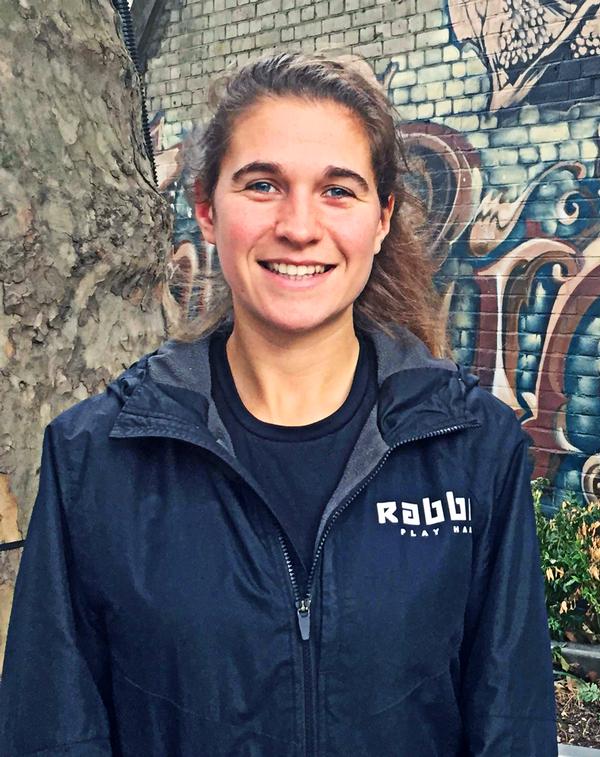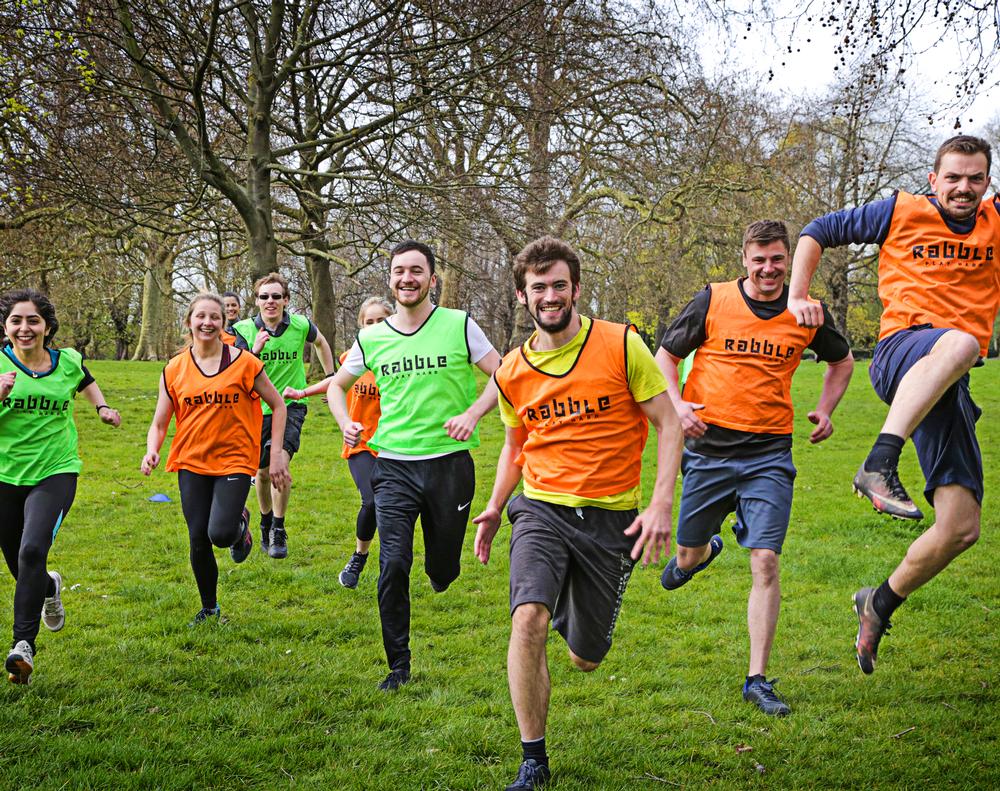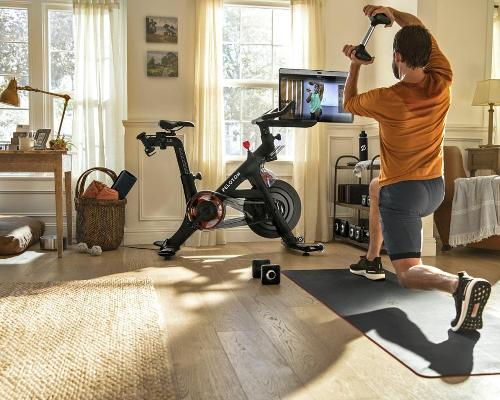What is Rabble?
It’s a high intensity team workout, based on modified playground games, such as dodgeball and catch the flag. We now have a library of around 500 games, some of which have been inspired by popular culture, such as Game of Thrones, while others bring in a number of different sports, such as Nesketball, which is a mash up of netball, basketball and American football.
We guarantee our sessions will be a great workout, that people will make friends and they’ll want to come back. There are no pre-requisities – you don’t have to be good at sport to play. The social element is key to the success, as it builds a community, which leads to retention. The original London group has led to seven weddings and three babies!
How did it come about?
While I was doing my degree in neuroscience and physiology I was a triathlete, competing at elite level and with my eye on the 2012 Olympics. But a near fatal bike crash in 2009 dashed my dreams.
Although I did go back to competing, I suffered from back problems – I could feel the metal pins holding my back together jarring when I ran. In 2010, after a second operation on my back, I started to question whether it was worth it.
After graduating, starting work as a construction manager and saying goodbye to my elite sport ambitions, I was looking forward to having a more healthy relationship with exercise. As an elite athlete, your personality is so tied up with your sport and success. You are always pushing yourself to the maximum, on the borderline of it being sustainable and always on the edge of injury. I was looking forward to enjoying exercise, but found that without a goal I lacked motivation.
Exercise became a chore. I started to dread or avoid gym sessions and then experienced the guilt after. I realised that if I felt like that, a lot of other adults would feel like it too. I wanted exercise to be something enjoyable, which I looked forward to and felt good after and that I could do with friends, which is how I came up with the idea of designing workouts based on childhood games.
What has been the biggest challenge in growing the concept?
Education has been one of them. Because we are the first to create an exercise concept like this, it can be difficult to position them as an effective form of exercise. Much of the fitness industry branding is based on a “no pain, no gain” and “sweat is your friend” philosophy, but we didn’t want to present Rabble like that, even though a session is ridiculously tiring! In our marketing, we try and project the idea that Rabble is predominantly fun, but also a great workout.
The other challenge has been dealing with people’s negative experiences of school sport: childhood games can bring up the nostalgic fear of being the last to get picked for teams and the first to get caught in tag. So, we’ve had to put across that our approach is different – there is no team picking, no favourites and all the games are set up so that everyone contributes, regardless of physical ability.
What does a session involve?
They are an hour long and include a variety of games, both to make it more interesting and also to stop people getting too good at them, which can then become intimidating for newbies. We approach the session as if everyone is new, so we give them three rules to play a game at the start and after every few minutes introduce another rule, so they can learn to play quite complex games very quickly.
There are lots of opportunities to bring in strength exercises as well. The extent of this depends on the instructor and also the space – the smaller a space, the more strength exercises are needed.
When and why did you decide to license Rabble?
We launched the licence in 2018, as we wanted to make it more widely accessible, while keeping it affordable and non-exclusive. There has been a fantastic response, from fitness instructors as well as people from outside the industry.
How could health and fitness operators engage?
We are very keen to work with more health and fitness operators and we believe we can bring a different dimension to their offering, attracting people who are disillusioned by the gym or exercise classes with repetitive movements. Sessions can take place in parks, sports halls, studios, car parks, tennis or basketball courts.
The best way for operators to engage with Rabble is to buy a licence and train an instructor. The training costs between £200 and £300, depending on whether it’s done in person or online, and the licence is £25 a month.
What plans do you have?
We just want to keep growing the network and would love to do more work with health clubs, as well as to continue to support our instructors. Going forward, we will increasingly be looking at ways to mobilise inactive people, as well as to work within schools – we are keen to change the impact and perception of school sport early on.

























































